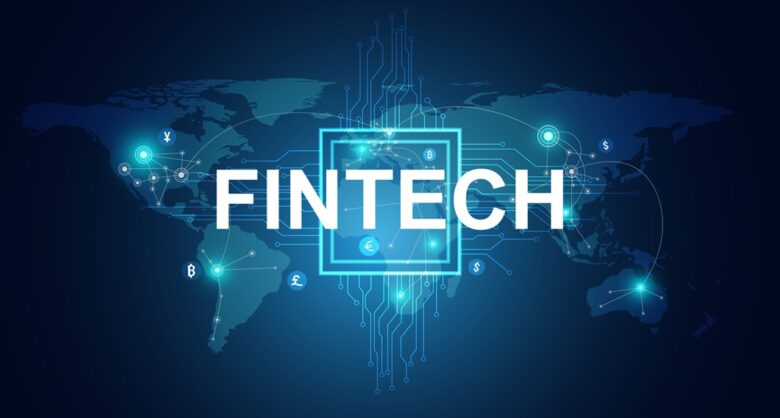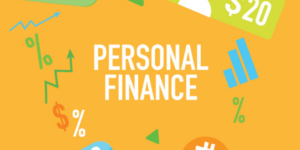Technology is driving financial change and changing the way we manage, invest and use money. Fintech is the integration of finance and technology and is changing the financial sector. In this comprehensive exploration, we explore the origins, facets, impact on financial inclusion, data-driven decision-making processes, challenges, regulatory environment and future innovations that promise to reshape the financial world.
FinTech Begins: The Digital Revolution
At the turn of the 21st century, digital technology began to enter the financial field, creating financial technology. Agile startups and software companies using the internet and mobile devices are challenging traditional brick-and-mortar banks and slow bureaucratic processes. Digital transformation allows people to come up with creative ways to manage their money, no matter where they are or what time they bank.
Fintech on its many Levels: Deciphering the Complexity
From blockchain to mobile payment systems, fintech applications are diverse. Transactions run smoothly with PayPal, Venmo and digital wallets for smartphones, challenging the current need for currency. LendingClub and Prosper are peer-to-peer lending systems that allow individuals to borrow money directly without the need for a financial intermediary. Robo-advisors use algorithms and machine learning to provide low-cost financial advice, making wealth management easier.
Cryptocurrencies use blockchain technology to enable secure, transparent and tamper-proof transactions. It created Bitcoin and revolutionized supply chain management, healthcare and voting systems. These diverse applications demonstrate the adaptability and revolutionary potential of fintech across industries.
Bridging the Financial inclusion Gap:
Inclusive finance is one of the greatest achievements of financial technology. Many people, especially in developing countries, do not have bank accounts and do not have access to financial services. Fintech, especially mobile banking and digital payments, is filling this vacuum. Smartphones allow people to bank, make payments and transfer money without a bank. Access to economic opportunities stimulates entrepreneurship and improves living standards.
Using Big Data for Decision-Making:
The fintech revolution depends on big data and analytics. Fintech companies analyze massive databases to understand customer behavior, spending and risks. This data-driven approach can tailor financial services to individuals needs. It improves fraud detection and ensures secure transactions. Data analytics optimizes lending practices, making it easier for more people to get loans, even those with bad credit.
Challenges and Supervision: Dealing with Complexity
Fintech’s transformative potential has been hampered by data security and regulatory concerns. Data breaches have raised concerns about the security, privacy and cybersecurity of online financial transactions. Technology sometimes advances faster than the rules, requiring a delicate balance between innovation and consumer protection.
Regulators around the world strive to balance innovation and consumer protection. Fintechs, traditional financial institutions and regulators must work together to achieve this balance. This evolving regulatory framework requires transparency, ethics and consumer education.
Future Financial Technology Innovation:
Future breakthroughs in financial technology will be even more disruptive. Artificial intelligence and machine learning will transform customer service and automate complex financial operations. Advanced AI chatbots and virtual assistants provide personalized financial advice and support. Machine learning is used to predict market trends, optimize portfolios, and detect fraud.
Decentralized finance platforms (DeFi) that use blockchain technology pose a threat to banks. DeFi offers peer-to-peer lending and trading without the need for a bank. It enables financial inclusion and innovation by giving people full control over their financial assets.
CBDC is another fintech frontier. Some countries are considering government-backed digital currencies. CBDC can reshape the global monetary system by combining digital payments with the stability and trust of fiat money.
Conclusion:
Fintech connects innovation, accessibility and empowerment in the financial sector. This is a paradigm shift that democratizes the financial world, making it more accessible, efficient and inclusive. The fintech experience goes beyond transactions. It’s about financial services that are personal, intuitive and responsive. Innovation that transcends boundaries transforms finance into a dynamic, adaptable environment.
As we enter a new financial era, we must recognize the enormous impact that financial technology has on our lives. The financial system is being transformed and becoming more transparent, efficient and fair, not just radically changed. Embrace a future where financial services enable goals and ambitions, not just tools. The fintech revolution is changing the way we view, participate in, and benefit from finance. Welcome to fintech, the new financial era.
FAQs:
1. What is financial technology and how is it changing the traditional financial sector?
Financial technology (FinTech) combines technology with financial services. These innovations include mobile payments, blockchain, robo-advisors and peer-to-peer financing. Digital platforms and powerful algorithms make financial technology services more convenient, efficient and personalized.
2. Can fintech promote financial inclusion in less developed countries?
Fintech plays a crucial role in promoting financial inclusion by offering digital banking solutions and mobile payment applications. In developing countries with limited traditional banking infrastructure, fintech provides basic financial services via smartphones. This convenience allows the unbanked to manage money, transact and access credit, improving their economic well-being.
3. What are the issues with fintech, especially in terms of privacy and regulation?
Due to the digital nature of transactions, data security is an important topic in financial technology. Protecting customer data from leaks and cyberthreats is a top priority. Moreover, regulatory frameworks continue to evolve to protect consumers and promote innovation. Finding a balance between encouraging fintech progress and implementing strong regulations to protect consumers is an ongoing challenge for the industry and regulators.
4. How will artificial intelligence (AI) shape the future of fintech? What benefits does it bring?
Artificial intelligence powers complex algorithms that can analyze large amounts of data, predict market patterns and optimize financial decisions, revolutionizing financial technology. Chatbots and virtual assistants use artificial intelligence to improve customer service and the user experience. Artificial intelligence also adds fraud detection to ensure the security of transactions. Effective data analytics, customer service and fraud prevention ensure a smoother and more secure financial ecosystem.
5. What’s next for fintech? How will it change our financial experience?
Decentralized finance platforms (DeFi), central bank digital currencies (CBDC) and artificial intelligence applications are the prospects for the advancement of financial technology. DeFi platforms promote financial inclusion by offering peer-to-peer financial services without intermediaries. CBDC is a government-backed digital currency that combines digital convenience with fiat stability. Fintech promises to make money management easier, safer and more convenient through these developments.



